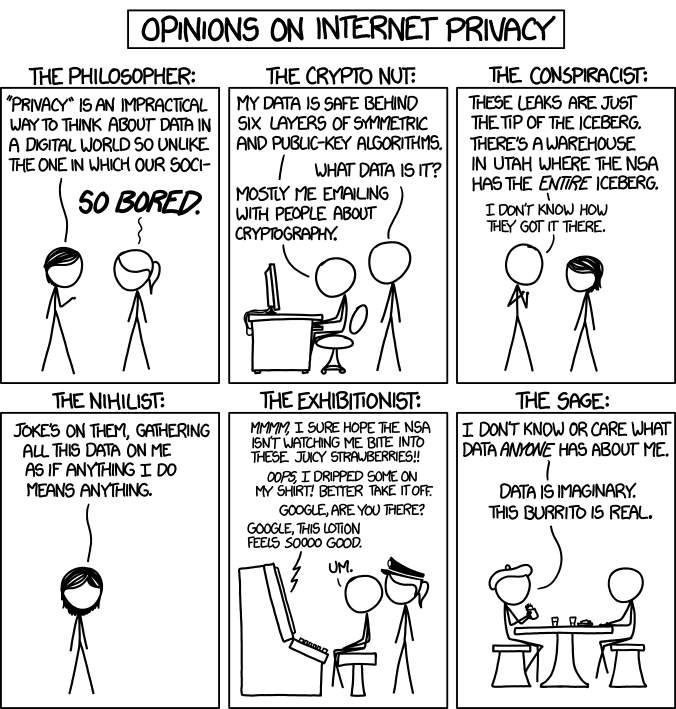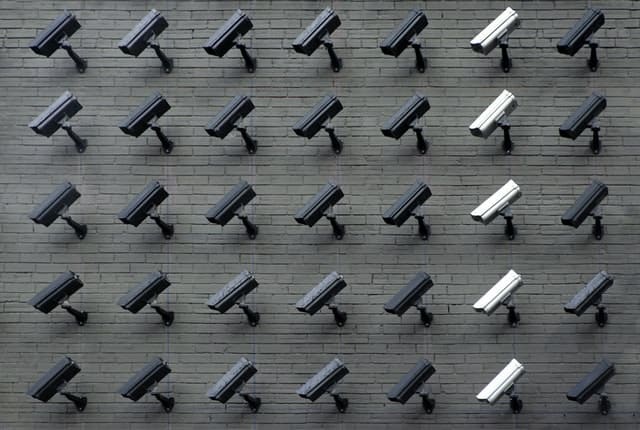We love our privacy. Or at least, we like to control what we put out into the (digital) world. We’re irked if some passerby starts paying attention to our conversation with a friend. It doesn’t matter what the conversation is about or whether the stranger has harmful thoughts. We are strongly against our non-public thoughts being made private.
In the digital world, we have a more public profile. We share our thoughts and lives, almost to the point where our most intimate and vulnerable moments are available for all to see. But to have those same people be privy to our day-to-day lives in the physical world rings alarm bells in our heads.
So we like to control our privacy. At least from other individuals. But why do we care about our privacy when it comes to corporations? Why do I automatically cringe when I pass by the Google Home and Amazon Echo products in the electronics aisle?
The whole point of those products is to make our lives more convenient. Having the ability to control your home with just your voice is one step away from just embedding chips in your brain. It’s optimization at its finest.
But with it, what do we give up? What does freedom even mean and why do we care? So what if Google and Amazon are able to predict our behavior better? So what if they learn when we go to sleep, when we entertain, and how often we have bowel movements?
We have strong aversions of individuals learning all of this, to the point of it being classified as creepy. But why does it matter if companies know? If the data is protected, and the employees can’t just casually look up our guilty pleasures, what do we need to be worried about?

The case for convenience
Look, for the average person, data stored by big companies of the likes of Google or Amazon is going to be safe. The only fear is from hackers or from the government’s intelligence agencies. When we live in the digital world, there are always going to be malicious actors. But who would you rather have guarding your data? A company that spends billions (with a B and 9 zeros) on cybersecurity, or yourself?
Okay, you’re right though. That just because they can keep our data doesn’t mean we need to give them more than what absolutely necessary.
But technology and innovation don’t just come into existence. Google Maps is only as amazing as it is because of the vast amounts of user data that is being shared to create a detailed picture. Similarly, voice command recognition which powers devices like Google Home or Amazon Echo don’t operate in a bubble. They garner feedback and look at the recordings of everyone to improve their algorithms. More feedback means more accurate responses.
Now, couple that with a whole system of devices that help monitor and control your home. Light switches and smart thermostats. Sure, they may seem like unnecessary fluff to some, but I can’t count the number of times I wish I had the ability to monitor if I left the oven on, or the door unlocked.
Once the system learns my habits, it might even be possible to leverage them to help build better habits! If I see the kitchen light is on, I’ll go to turn it off, but not before checking the fridge first. Don’t want to have gotten up just to turn the light off. Gotta make the trip worth it. And before I know it, I’ve already broken my New Year’s resolve to snack less. A ‘smart’ system might eventually be able to prevent this by learning that I open the fridge every time I go to turn off the lights.
But you get the idea. Consumer technology isn’t just for us. It’s because of us. We provide the data to make it happen. To create more customized solutions than a slap of one-size-fits-all.
Privacy is Important …
The blind automatic trust of Big Corp
Thank OAuth2 right? No more individual registrations of services. All you need is a Google or Facebook account and you’re good to go! But when did we start trusting these companies with everything? To the extent that we now invite them into our homes to listen to our conversations?
Let’s be honest. No one reads the terms of service or any other agreement document before signing up for a service. Maybe we’ll skim through and catch a few phrases. But we have implicit trust in the system. The company to not do anything malicious, and the right organization to intervene if something was amiss.
I mean, someone must catch an abnormality in the “terms of service” if there was one right? And because of the internet, everyone would immediately know about it.
This trust, or should I say, “default behavior”, leads us to discount the value of our data and privacy. We become desensitized to our data being used because we believe that if there really was a problem, we would know about it very much in advance.
What does losing digital freedom look like?
If you’ve ever used the incognito mode on a web browser, you aren’t fully free (unless it was to prevent storing cookies). There is something you don’t want others to know about. Whether this person is close to you or if your activity was just something that makes you vulnerable.
When I was struggling with hair-loss, Google was at my beck-and-call. But every time I went to search for something to help prevent my falling follicles, I went to incognito browsing. The fear of having an ad pop-up for minoxidil on my browser, while someone else was around me, was too embarrassing to even think about.
I had lost the freedom to search freely.
For those with Alexa or Google Assistant actively listening patiently in their homes, I’m sure they think twice before actually saying something. It doesn’t matter if the data is anonymized before actual amazon workers listen to the recordings. Because the thought of someone hearing our most intimate or goofy thoughts is too creepy, bordering on scary.
Those people have lost the freedom to speak freely at home.
These are subtle but powerful examples of how a lack of privacy affects us. We may not blame our tech benefactors at first, or even second, thought, but it is inextricably linked to how we give up privacy for convenience.
You don’t see the Manipulation until you do
“TikTok made me buy it”
is a trending theme where people seem to boast about how much influence TikTok has on their consumer habits. TikTok has quickly become the landing page for millions of people, trying to find content and communities. Within these communities, people occasionally find themselves purchasing items, influenced by the “right” video that crossed their eyes.
The result? A gleeful response of how TikTok made them buy it. The word is “made”, to emphasize how the platform seems to have influential ability rather than the influencers themselves. But people are perfectly happy with this! They feel as if they have discovered the product instead of having been served a blatantly obvious advertisement.
The content machine has proved successful in creating an environment where it can specify the behavior of its users, and have them actually enjoy it! This is the power of understanding behavior.
They are true through. We hate advertisements but gladly accept them wrapped in a serving of entertainment with a layer of communal trust.
The concern isn’t exactly about being exposed to advocates about the product, but the tailoring of the “discovery” to get you the right video at the right time. The video will appeal to you on a personal level to get you to buy.
Choosing privacy over convenience or vice versa is very subjective. Some people, like me, want to protect their privacy but don’t really know why. Others don’t care too much about their data at all and love customized ads more than random ones.
One thing is clear though. The balance is not a perpetual guarantee. Laws and regulations change. Technology often moves faster than regulators have a chance to fully inspect it, making people more vulnerable to experimentation. Who knows if your stance on your privacy and data will stay consistent.
We are also ignorant about the many ways our data can be used to serve the bottom lines of companies. What we think might just be data useful in telling when we turn off light switches, has a slew of latent information about our behavior and life at home.
Whether we care about it though, is left up to us.

